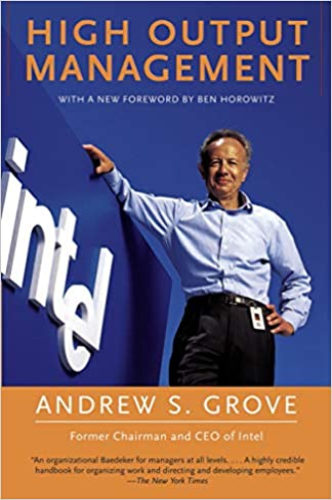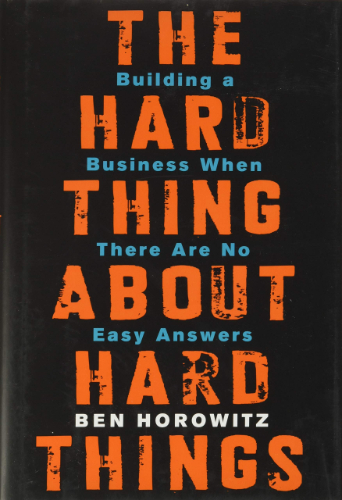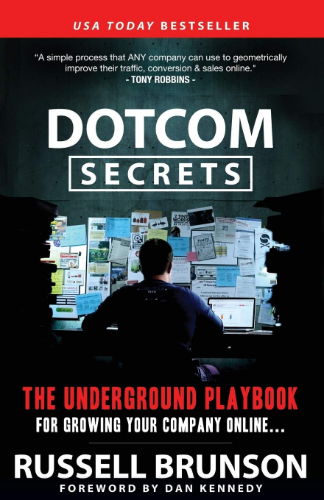How To Fail at Almost Everything and Still Win Big by Scott Adams: Summary and Notes

One sentence summary: How To Fail at Almost Everything and Still Win Big by Scott Adams is a fun and easy-to-read book on the fundamentals of a successful and happy life.
One Paragraph summary: Scott Adams’s journey to fame and wealth is brilliantly captured in his book How To Fail at Almost Everything and Still Win Big He narrates how he founded the Dilbert comic and shares what he believes to be the path to a successful life. You will love the title for its many inspiring quotes and stories.
Favorite quote from the author:
If, by any chance, you don’t know who Scott Adams is, then you must know Dilbert, the main character in Dilbert comics.

Dilbert comic was actually written and conceived by Scott Adams, and by his own account, it was not easy creating the insanely popular comic. He shares his story in How To Fail at Almost Everything and Still Win Big which by my estimation, is one of the most excellent books on self-management out there.
Here, I will share the main lessons from the book with you guys.
Main Takeaways from How To Fail at Almost Everything and Still Win Big by Scott Adams
Main takeaways from Start With Why by Simon Simek
-
To be successful, choose systems over goals
-
Don’t peg your success on passion
-
When starting, be selfish with your time and money
-
To maximize your energy, simplify or organize
-
Manage your attitude by programming the brain for success
-
The only reasonable goal in life is the pursuit of happiness
Lesson 1: To be successful, choose systems over goals
Scott says that you have to choose systems over goals for you to be successful because once you achieve your goals, you are left empty and with nothing to do. For example, if you decide to lose 10 pounds, what happens when you are done? Often, you will find that most people gain the weight back because they have no system in place for weight management. A weight-loss system might involve dieting, an exercise regime, and so on. It will continue to run long after you have achieved your goal of shedding those extra pounds.
Systems are also key to producing consistent results. And as Scott puts it, they are failure-proof because what you are looking to achieve with a system is not results per se but the continued use of a systems approach to things.
To set up a system, start by identifying the odds and play them in your favor. Choose a general strategy and have some level of focus. You will require a system to filter what’s to focus on and what to ignore. Saying no to temptations will get you very far in life.
Lesson 2: Don’t peg your success on passion
Only the self-disciplined are free — Eliud Kipchoge
Scott says that passion is bullshit, and I agree. Why? Theories on motivation say the same thing. Passion comes and goes, and if you are going to depend on it, you need to ask yourself: “What will I do when I don’t feel like waking up in the morning?”
Another thing that makes passion unreliable is that the more successful you are, the more passionate you become, which is confusing because if you are passionate to begin with, it shouldn’t matter that much if you get discouraging results. In other words, it is hard telling whether passion leads to success or success leads to passion.
The best replacement for passion is self-discipline. You need a system that will keep you on track no matter what. As results start to trickle in, you will find the motivation to continue pushing.
The following are the patterns of success:
-
Lack of fear
-
Education
-
Exercise
The lack of embarrassment and fear will make you proactive, and you will make you more likely to take on challenges that others are afraid of. On the other hand, taking up any new skill doubles your odds of success.
According to Scott, every adult should have the following skills:
-
Public speaking
-
Accounting
-
Psychology
-
Business writing
-
Design
-
Second language
-
Overcoming shyness
-
Golf
-
Proper voice technique
-
Proper grammar
-
Persuasion
-
Technology
Lesson 3: When starting, be selfish with your time and money
Scott makes a very important point on selfishness — it is not all bad. If you are selfish with your time and money, especially at the start, you will make it further in life than by being careless with your two most valuable resources .
At the same time, people will understand when you are busy and learn to make room for you as you pursue your goals. Scott says by presenting your best version to others — and which comes by being selfish with your time and money — you are actually doing everyone a favor because you have a plan to use every minute you get wisely. .
Once you are done being selfish with time and money, you can engage in philanthropy and other acts of goodwill.
Scott puts it best when he says:
“As a future or current rich person, you might pay far more than your share of taxes because of your selfish pursuit of income. Selfish successful people don’t cause worry and stress for those who care about them. As a selfish successful person, you can be a role model for others. Selfish successful people can be fun company if they’ve squirreled away all they need and have no complaints to voice.”
Lesson 4: To maximize your energy, simplify or organize
The only way to achieve your goals is to prioritize. The totally unrelated to this post, Warren Buffet says understand your circle of competence and stick with it. There is so little we can actually do in life, and to get as much as possible done, we need to decide at the earliest where to direct our energies
Scott’s strategy for organizing his priorities involves focusing on one metric — energy. He recommends eating right, exercising, avoiding unnecessary stress, and getting enough sleep to maximize energy. When your energy metric is right, your quality of work will be better, and you will be excited to wake up.
Another way to maximize your energy is to either be a simplifier or an optimizer. A simplifier is a person who chooses the easiest path to a goal while the optimizer seeks the best solution to a problem.
Lesson 5: Manage your attitude by programming the brain for success
According to Scott, attitude affects everything we do in our quest for success and happiness. His comments on the topic reminded me of The Magic of Thinking Big by David Schwartz. And it is not only these two fellows who say this. Everyone from Budhaa and I guess even Oprah agrees that what you think affects how you do things and your life’s quality.
To alter your attitude, increase the ratio of positive thoughts compared to negative thoughts. And if your life doesn’t offer much in the form of positive outcomes, engage in daydreaming. Think of daydreaming as a fake it until you make it situation. Also, smile often and act confidently, and you will feel more confident.
“When you can release on your ego long enough to view your perceptions as incomplete or misleading, it gives you the freedom to imagine new and potentially more useful ways of looking at the world.”
Lesson 6: The only reasonable goal in life is the pursuit of happiness
There you heard it. You cannot extract anything else in life except happiness. And the thing is, happiness is very subjective; your version is not my version and will look entirely different from that of anyone else. I guess that’s why the most common advice on the internet is be yourself because everyone else is taken. Wait, where did I read that? Oh, it must have been in the Art of The Pitch
The happiness formula, according to Scott Adams
-
Eat right
-
Exercise
-
Get enough sleep
-
Dream of an incredible future (even if you don’t believe it)
-
Work toward a flexible schedule. People with predictable schedules are generally happier
-
Do things you can steadily improve at
-
Help others. There is joy in being selfless
-
Create a routine that reduces your daily decisions
Wrap Up
How To Fail at Almost Everything and Still Win Big by Scott Adams does live up to its wild title. Scott didn’t have it easy, but by sticking to a system, being immune to failure, and by pursuing happiness ruthlessly, he was able to overcome the odds and make it big. The main message is that anyone can become successful as long they are willing to risk things and be optimistic in life
Who Would I recommend the Book To?
If you like fun and easy-to-read books that are also inspirational, then this book will be great for you.
GET THE BOOK ON AMAZONRate this book!
This book has an average rating of 5 based on 2 votes.









































